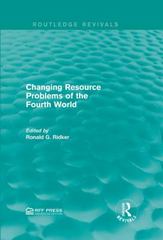Question
Which of the following is NOT an argument for the importance of limiting inequality of wealth in a free society? Select one: a.Inequality of wealth
Which of the following is NOT an argument for the importance of limiting inequality of wealth in a free society?
Select one:
a.Inequality of wealth can to some extent be evened out, if the wealthiest agree to voluntarily donate their resources to charity (as, for example, the Bill and Melinda Gates Foundation does).
b.Unequal wealth can lead to unequal political power in a democracy, since extremely wealthy people (or groups) can afford to donate large sums of money to legislators who will then have an incentive not to vote against that person's (or group's) interests (so they won't stop donating money to their campaigns)/
c.Unequal wealth can lead to unequal political power in a democracy, since extremely wealthy people (or groups) can "buy" votes through expensive political advertisements and campaigns that ordinary people could not afford.
d.None of the above are arguments for limiting inequality of wealth in a free society.
Rousseau's philosophy (and the philosophy behind the French Revolution) would seek to minimize inequality of income and political power, even if this means having a bigger government and more regulation of that market than one would have in a totally free-market system.
Select one:
True
False
The difference between negative rights and positive rights is:
Select one:
a.Negative rights are justifications for NOT being interfered with (for example, the right to free speech).
Positive rights are justifications for being given something usually considered a good (for example, a right to education or to healthcare).
b.Negative rights are rights to do things that would ordinarily be considered harmful (though they are not harmful under the circumstances)
Positive rights are rights to do things that are beneficial.
c.Negative rights are rights to take something away from someone (for example, through fining or other kinds of punishment).
Positive rights are rights to give something to someone (for example, through inheritance, a sale, or a gift).
d.Negative rights are rights to refrain from doing things (like the right to remain silent).
Positive rights are rights to do things (like the right to peaceful assembly or free speech).
Which of the following arguments in favor of Welfare Capitalism does Audi NOT mention?
Select one:
a.Democracy should benefit all of the people, and so should tax businesses and citizens in a way that funds an educational system that enables everyone to develop economically useful and personally rewarding skills.
b.Simply from an economic point of view, society as a whole is better off when government provides not only educational services, but a kind of "utility floor": healthcare, unemployment insurance, and other benefits.
c.Wealthy people do not normally deserve the wealth that they have acquired, whereas most poor people do deserve more wealth than they have.
d.Audi discusses ALL of these arguments.
Which of the following Ethical Theories does Audi discuss in this chapter?
Select one:
a.Utilitarianism
b.Rights-Based Ethics
c.Kantian Ethics
d.Virtue Ethics
e.Common-Sense Ethical Pluralism
f.All of the Above.
g.None of the Above.
Which of the following are reasons why Rawls would want to allowsomeeconomic inequality?
Select one:
a.Justice allows socioeconomic inequalities where everyone benefits from that inequality.
b.Even enlightened self-interest supports allowing some inequality, because it might be better (for example) to have the smallest sliceof a bigger pierather than have one piece of an equally divided piewhen that pie is smaller.
c.Both of theseare reasons why Rawls would want to allowsomeeconomic inequality.
d.None of theseare reasons why Rawls would want to allowsomeeconomic inequality.
A free market view says that all government involvement in the economy is necessary negative, and there is no role for the government in the economy.
Select one:
True
False
Welfare capitalism supports a free economy, but also things like tax-supported public education, transportation, safety regulation for food, medicine, and utilities, and emergency funding for the unemployed.
Select one:
True
False
The view Audi discusses which contrasts with a pure free market view, but also makes room for both capitalism and, apparently, a far-reaching welfare system is one that was developed by John Rawls.
Select one:
True
False
Almost any reasonable ethical theory would say that Ethics requires more from us than simply what is required by the law.
Select one:
True
False
Step by Step Solution
There are 3 Steps involved in it
Step: 1

Get Instant Access to Expert-Tailored Solutions
See step-by-step solutions with expert insights and AI powered tools for academic success
Step: 2

Step: 3

Ace Your Homework with AI
Get the answers you need in no time with our AI-driven, step-by-step assistance
Get Started


